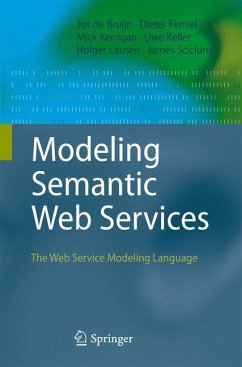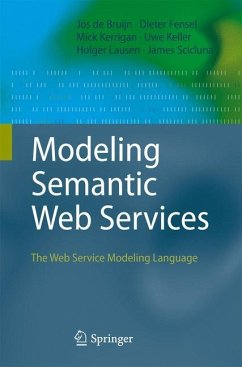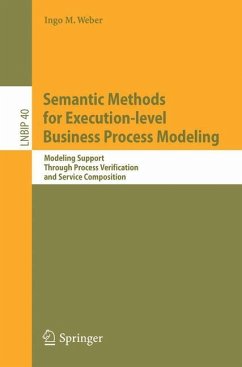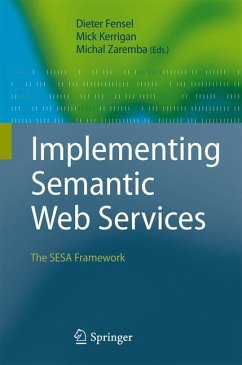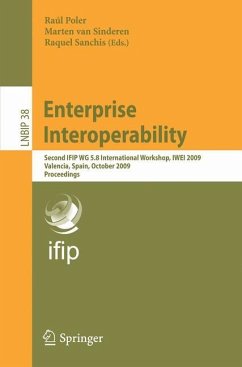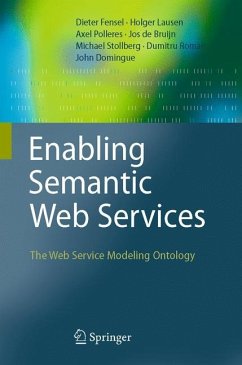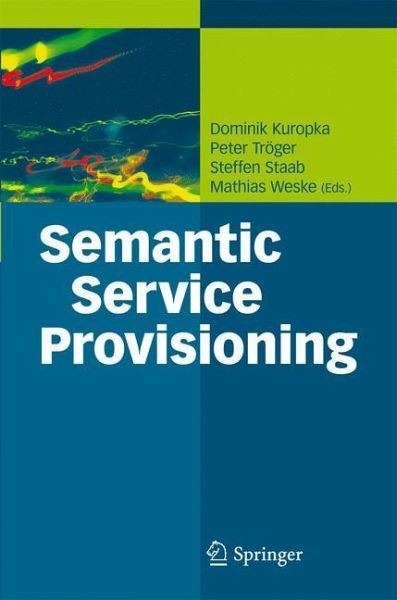
Semantic Service Provisioning

PAYBACK Punkte
19 °P sammeln!
Service-oriented computing has recently gained extensive momentum in both industry and academia, and major software vendors hook on to the service paradigm and tailor their software systems towards services in order to accommodate ever-changing process and product requirements in today's dynamic market environments. While dynamic binding of services at runtime was identified as a core functionality of service-based environments as far back as 2000, its industrial-strength implementation has yet to be achieved. The main reason for this is the lack of rich service specifications, concepts, and t...
Service-oriented computing has recently gained extensive momentum in both industry and academia, and major software vendors hook on to the service paradigm and tailor their software systems towards services in order to accommodate ever-changing process and product requirements in today's dynamic market environments. While dynamic binding of services at runtime was identified as a core functionality of service-based environments as far back as 2000, its industrial-strength implementation has yet to be achieved. The main reason for this is the lack of rich service specifications, concepts, and tools to process them.
This book introduces advanced concepts in service provisioning and service engineering, including semantic concepts, dynamic discovery and composition, and illustrates them in a concrete business use case scenario. To prove the validity of the concepts and technologies, a semantic service provisioning reference architecture framework as well as a prototypical implementation of its subsystems and a prototypical realization of a proper business scenario are presented. Thus the book goes way beyond current service-based software technologies by providing a coherent and consistent set of technologies and systems functionality that realizes advanced concepts in service provisioning.
Both the use case scenario and the provisioning platform have already been substantiated and implemented by the EU-funded Adaptive Services Grid project. The book therefore presents state-of-the-art research results that have already passed a real industrial implementation evaluation which is based on the work of over 20 European partners cooperating in the field of semantic service provisioning.
This book introduces advanced concepts in service provisioning and service engineering, including semantic concepts, dynamic discovery and composition, and illustrates them in a concrete business use case scenario. To prove the validity of the concepts and technologies, a semantic service provisioning reference architecture framework as well as a prototypical implementation of its subsystems and a prototypical realization of a proper business scenario are presented. Thus the book goes way beyond current service-based software technologies by providing a coherent and consistent set of technologies and systems functionality that realizes advanced concepts in service provisioning.
Both the use case scenario and the provisioning platform have already been substantiated and implemented by the EU-funded Adaptive Services Grid project. The book therefore presents state-of-the-art research results that have already passed a real industrial implementation evaluation which is based on the work of over 20 European partners cooperating in the field of semantic service provisioning.






